The 17th Annual Francis Davis Jazz Poll: A Profusion of Geniuses
By Tom Hull
Finding music that touches you is a very haphazard process, where intermediaries like the 151 voters in this Poll play an invaluable role. There is a vast wealth of little-heard jazz out there. We’re helping you find it.
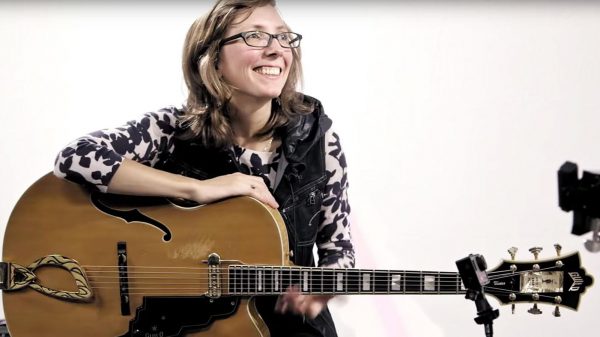
Guitarist Mary Halvorson’s Amaryllis finished on top, rather easily, this year.
This is the 17th annual edition of the Francis Davis Jazz Poll, finally named for its founder and guiding light. The Poll collates top-10 lists from 151 jazz critics and journalists, and as such provides a wealth of insight into and data about this past year in jazz. From its founding in 2006 through 2021, Davis wrote an introduction and summary for each poll. This year Davis asked me to run the Poll, leaving some very big shoes for me to try to fill. I don’t have any great cosmic insights into the evolution of the music or how it fits into our changing world. When I asked voters for comments, they mostly affirmed that jazz remains a vigorous art form that makes our lives better. True that is, even if it seems too mundane to mention.
I can offer a set of notes on things I found interesting in this year’s top results, with occasional reference to the complete results and individual ballots, which are available in archive. In doing so, I’ve often found myself referring back to past years. To help you better understand the present, I’ve written a brief memoir of the Poll’s founding and evolution (and my modest role in that history), and a guide to poll winners over that history. And finally, following Davis’s practice from early on, I’ve compiled a list of jazz notables who have passed in 2022.
If you want to read a comprehensive essay on 2022: The Year in Jazz, Ken Franckling has written one I couldn’t hope to improve on. It includes an “in memoriam” list that I’ve cribbed from, but haven’t come close to exhausting.
Also see:
My Poll Without Me by Francis Davis
Looking Back at the Francis Davis Poll and Memoir of a Pollwatcher
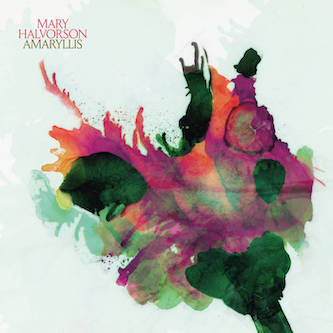 Mary Halvorson’s Amaryllis won the 17th Annual Francis Davis Jazz Poll rather handily, overcoming a division in her votes, with competitor Tyshawn Sorey’s votes also split between two albums, coming in fourth and fifth. Add Sorey’s two albums together and you get more points (389) than Amaryllis (349.5), but add in Belladonna (75.5) — a second Halvorson album released on the same day, a pairing that many voters thought should have been treated as one — and Halvorson again comes out ahead. She was also the prime mover in the trio Thumbscrew (with Michael Formanek and Tomas Fujiwara), which finished 42, and she played on several other albums that finished in the top 50: Myra Melford’s For the Love of Fire and Water (7), Tomas Fujiwara’s March (32), Nate Wooley’s Ancient Songs of Burlap Heroes (35), and Trevor Dunn’s Séances (39), as well as a couple more that didn’t make the top 50.
Mary Halvorson’s Amaryllis won the 17th Annual Francis Davis Jazz Poll rather handily, overcoming a division in her votes, with competitor Tyshawn Sorey’s votes also split between two albums, coming in fourth and fifth. Add Sorey’s two albums together and you get more points (389) than Amaryllis (349.5), but add in Belladonna (75.5) — a second Halvorson album released on the same day, a pairing that many voters thought should have been treated as one — and Halvorson again comes out ahead. She was also the prime mover in the trio Thumbscrew (with Michael Formanek and Tomas Fujiwara), which finished 42, and she played on several other albums that finished in the top 50: Myra Melford’s For the Love of Fire and Water (7), Tomas Fujiwara’s March (32), Nate Wooley’s Ancient Songs of Burlap Heroes (35), and Trevor Dunn’s Séances (39), as well as a couple more that didn’t make the top 50.
Halvorson is the third woman (after Maria Schneider and Kris Davis) to top the poll; also the first guitarist. But she’s contended many times before: including her work with Thumbscrew, she now has 17 albums in the top 50, including three previous top-five showings: Saturn Sings (3 in 2010), Away With You (4 in 2016), and Artlessly Falling (4 in 2020). No other guitarist has come close to her record: Nels Cline scored fourth in 2006 and seventh in 2016; Bill Frisell has two ninth places (one a duet with Jim Hall); Jeff Parker has a 10th in 2020. What separates her from the crowd has less to do with virtuosity, although she certainly has her moments, than with her surprising compositions and arrangements, where her guitar is just one element among many she keeps in constant motion. I suspect Amaryllis got most critics’ nod this time due to the more colorful mix of horns, compared to Belladonna‘s much starker guitar-plus-string-quartet, but some critics preferred the latter’s format (citing more prominent guitar).
Tyshawn Sorey is another brilliant musician — both he and Halvorson are recent recipients of MacArthur “genius” grants — who often leads with his compositions: he’s mostly a drummer, but his first charting album (That/Not, 32 in 2007) had long stretches of him playing piano. He has placed 11 albums in the top 50, plus two more on credit lines headed by Kris Davis and Vijay Iyer. But his records this year featured jazz standards, with Aaron Diehl on piano and Matt Brewer on bass, plus Greg Osby (alto sax) on the latter. I noticed a time split there, with early voters favoring Mesmerism — at one point early in the counting tied with Amaryllis — and The Off-Off Broadway Guide to Synergism closing fast over the final weekend: a difference possibly attributable to July 8 vs. October 28 release dates. The latter was easily my favorite album of the year, but I had it less than a week before I voted. The deadline for ballots this year was December 12, which puts a lot of pressure on voters to rush judgments on late albums, and strains them to remember early ones. (For example, Fred Hersch, who has placed records as high as 11 and 12, released an excellent album in January that only garnered three votes this year, landing at 97.)
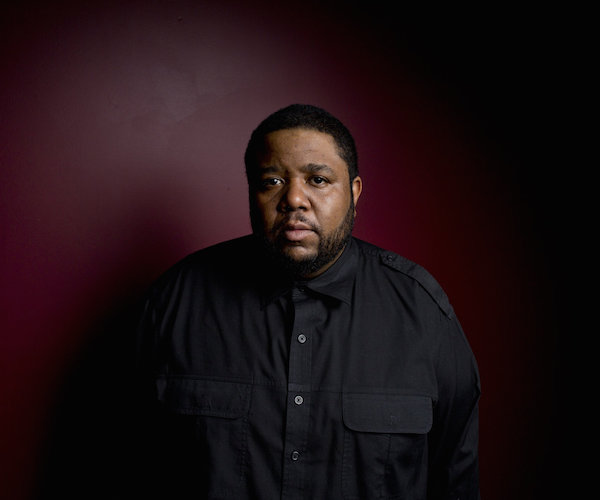
Drummer and pianist Tyshawn Sorey — he and Mary Halvorson are recent recipients of MacArthur “genius” grants.
Between Halvorson and Sorey, two younger performers slipped in: Immanuel Wilkins’s The 7th Hand, and Cécile McLorin Salvant’s Ghost Song. Wilkins had won the Debut category in 2020, while finishing 11 overall. Salvant has dominated the Vocal category ever since her WomanChild appeared in 2013 (placing four overall — the highest New Releases placement for a Vocal album until this year, the only close competition being Cassandra Wilson at 6 in 2008). Salvant also easily won the Vocal category, for the fifth time.
The top 10 was rounded out with new records from JD Allen (his eighth, and highest, top-50 finish), Myra Melford (her sixth), Terri Lyne Carrington (her fourth), Ches Smith (down a couple slots from his 2021 Path of Seven Colors), and Wadada Leo Smith (a five-CD box, while his seven-CD String Quartets Nos. 1-12 tied at 58, and he got votes for three more albums way down the list; he has 16 top-50 finishes, including a 5 in 2008, a 3 in 2012, a 2 in 2014, another 2 in 2016, and a 5 in 2021).
Further down the list, note that:
- Matthew Shipp placed 11 this year. He has 13 top-50 finishes, the highest at 6 for 2011’s The Art of the Improviser.
- Makaya McCraven’s In These Times came in at 13. Most recent years have a couple albums that do well here and also show up in relatively experimental non-jazz lists, suggesting crossover without compromise. Jeff Parker (28), Moor Mother (30), and possibly Janel Leppin (46) follow this pattern, each in its own way. Note that Moor Mother (Camae Ayewa), who started out as a poet/rapper, got 10 votes overall, but only two in Vocal.
- Charles Lloyd, who has eight top-10 finishes (best 3 in 2013), split this year’s effort into three separate trio albums, the top one finishing 14. Add them together — as one voter argued we should, citing a box set reissue that came out later — and he could have slipped into 8th place.
- Last year’s top-2 Debuts produced sophomore albums, with Patricia Brennan at 16, and Samara Joy at 15.
- This year’s Latin winner, Miguel Zenón’s Música de las Américas, was at 20, although the runner up in Latin, David Virelles’s Nuna, placed higher overall, at 17. We figure “Latin” is a subjective category, so variances like this aren’t unusual. Zenón had two albums in 2021. His Ornette Coleman tribute did better in New Releases, but his El Arte Del Bolero won the Latin category. This is Zenón’s sixth win in Latin, and 10th top-50 finish (highest 4 in 2011).
- At 19, Marta Sanchez was the highest ranked European (Spanish) on a European (British) label, but she’s long been based in New York. Norwegian guitarist Jakob Bro, on German label ECM, came in at 33, but he shared top billing with Joe Lovano, and ECM has long been distributed in the US by Universal, making it practically a major label. Otherwise, European labels only cracked the top 50 with American artists: Wadada Leo Smith (10, TUM); Andrew Cyrille (12, TUM); David Murray (24, Intakt); Keith Jarrett (26, ECM); James Brandon Lewis (37, Intakt); Avram Fefer (38, Clean Feed). Partly this can be attributed to the US-centric voting bloc (still less than 10 percent European), and partly because soaring postage costs have cut back on European labels promoting in the US. Over the course of the poll, Intakt has placed 19 records in the top 50; Clean Feed and TUM 15 each; and ECM a whopping 75.
- At 22, South African pianist Ndudzo Makhathini wasn’t the highest placed African artist ever — that was Nigerian guitarist Lionel Loueke (12 in 2008). Both were on Blue Note.
- At 31, Japanese pianist Satoko Fujii tied her highest previous rank (in 2018, for Solo). She is one of the world’s most formidable pianists, and Hyaku was meant to highlight her career strengths on the occasion of her 100th album. That she was recognized at all is probably due to her American publicist. I’ve often been astonished by recent reissues of Japanese avant-jazz albums dating back to the early 1970s (notably on NoBusiness and BBE).
- At 39, Trevor Dunn’s Séances is a prime example of what seems like a trend: employing string quartets. I’ve already mentioned Halvorson and Smith, and I’m sure there are another half-dozen examples down the list and out beyond. Jazz has entered academia and incorporated, reinvigorated and/or supplanted classical music there, which has led to a focus on composing and arranging for previously classical groups. The results are much more sophisticated than the clumsy “third stream” efforts of the 1950s. As one who grew up phobic to classical music in the 1950s — it was perhaps the first conventional wisdom I rebelled against — I tend to be wary, but even I am sometimes dazzled.
- Major labels did typically well this year (perhaps even better than usual), with Blue Note placing seven records in the top 50, and Nonesuch (Warners) five. Universal (Verve/Impulse/Decca), however, was down to one (or three if you count ECM).
- Pi Recordings placed all four of its releases this year in the top-fifty, at 5 (Sorey), 17 (Virelles), 27 (Steve Lehman), and 43 (Miles Okazaki).
- As a rule of thumb, any time you see an obscure label on the list, there’s a fairly major independent publicist working the album. (For example, Tyshawn Sorey’s 4th place Mesmerism, on Yeros7 Music, was publicized by Fully Altered Media.) Otherwise, it’s nearly impossible for any critical mass of reviewers to hear of, much less hear. I’m plugged in enough to recognize most of these (something I wrote about last year), but two records stand out this year because I’m not aware of their labels doing any publicity: at 28, Jeff Parker’s Mondays at the Enfield Tennis Academy (Eremite), and at 54, Zoh Amba’s Debut-winning O, Sun (Tzadik). I’m probably missing something there, but whatever it is missed me.
- If you care to count, four of the top 10 places (and nine of 21) were led by women. Not quite gender equality, but routine enough that Carrington’s New Standards by all-women composers seemed almost too easy. You might also notice that 10 of the top 13 albums were led by African Americans. The shares thin out a bit further down the list, partly due to a block of Latin Americans at 17-18-20 (David Virelles from Cuba, Melissa Aldana from Chile, and Miguel Zenón from Puerto Rico; I’m not counting 19 Marta Sanchez from Spain). It’s always foolish to generalize, except I’ll note that racism has always been inimical to the spirit and lore of jazz, and that jazz is an antidote to the epidemic of bigotry and stupidity all around us.
I could expand this bullet list many times over by going farther down the list, especially picking out records that deserve attention. The tendency to view the top 50 (or top 10) as a horse race or beauty contest misses that most of the value of the Poll resides in its depth and breadth: the full New Releases table runs to 510 albums, a little more than three unique albums per voter. For instance, my ballot contains four albums that didn’t make the top 50: Dave Rempis’s Bennu (Aerophonic), Omri Ziegele’s That Hat (Intakt), Rodrigo Amado’s Refraction Solo, and Dave Sewelson’s Smooth Free Jazz (Mahakala Music). Of these, only Amado — who by my accounting has more A-list albums than any other saxophonist in the 21st century, but being Portuguese has never made the Poll’s top 50 — received a single other vote (as well as votes for two more albums, both A- in my book).
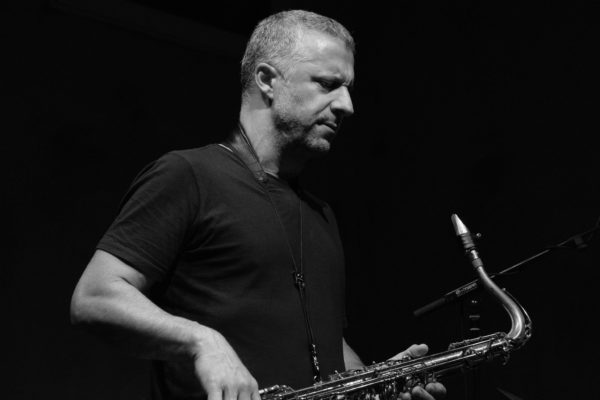
Rodrigo Amado: He has more A-list albums than any other saxophonist in the 21st century, but being Portuguese has never made the Poll’s top 50.
Davis usually ends his essay with a rundown of his own ballot, and an extra list of honorable mentions, because he realizes as much as anyone that 10 isn’t enough. I won’t bother unpacking my ballot here, because I have a separate file that goes way beyond my top 10, including my full “A-list” (73 albums and likely to grow), plus all the other new jazz albums I’ve listened to in the past year (870 albums in all).
But we should move on to the other categories, chief among which is the one Francis Davis named Rara Avis. The rule is that albums which contain any music more than 10 years old should be considered here, instead of under New Releases. But the effect is to group together several different things:
- Straight reissues of old (and often classic) albums: mostly these days that refers to “luxury vinyl” reissues from Blue Note or Universal, although the revival of the Candid label netted votes for six titles.
- Compilations of either well-known (including the big Mosaic boxes, or Craft’s Ornette Coleman box) or obscure recordings (like the Pyramids’ AOMAWA).
- Repackaged bootlegs, some with additional material (like the winning Cecil Taylor Town Hall concert), some more official (like the Miles Davis Bootleg Series), some just better organized (like Albert Ayler’s Fondation Maeght Recordings).
- Previously unreleased vault material, more typically from legendary artists (Charles Mingus’s The Lost Album was this year’s leading example, followed by two two-CD sets of Ahmad Jamal, and Elvin Jones’s Revival), but possibly also from a newer artist’s backlog (like William Parker’s Universal Tonality).
In most recent years, the category has been won by a vault find, especially if it came from John Coltrane or Thelonious Monk. Mingus had the inside track this year, and actually got the most votes, but was outpointed by Cecil Taylor’s The Complete, Legendary, Live Return Concert, with his 1973 group at full blast. Some voters wanted to combine the Jamal sets, not least because there is little reason to prefer one over the other, but even if you add the two votes together, they would have come in third.
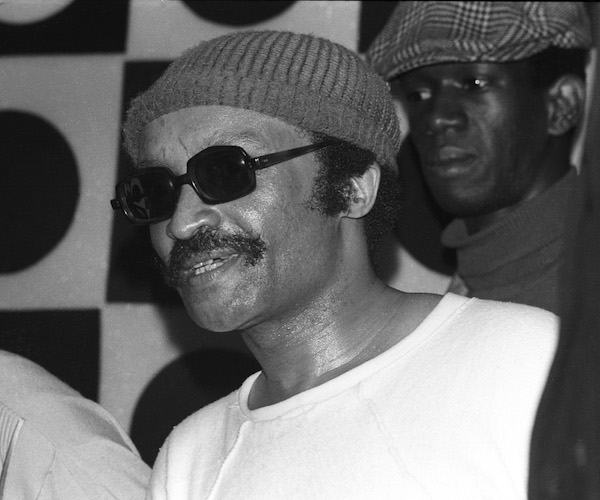
Cecil Taylor in Detroit in 1971. Photo: Michael Ullman
Beyond the top nine, which each have 12 or more votes (8 percent of the electorate), the list scatters pretty widely, ending up with 109 separate albums. This is where the voters divide into camps favoring one or another of the four divisions above. Certainly, that John Coltrane’s Crescent only got two votes isn’t any reflection on the music. It has much more to do with whether audiophile vinyl of a classic matters more to you than, well, to pick previously unreleased examples with the same number of votes: a Pepper Adams live tape from 1972, a shelved Joyce Moreno album from 1977, or a Brian Blade bootleg from 2000.
I’ve referred to the special categories in passing above, but to recap briefly:
- In Debut, we at least have a strict definition of what’s eligible and what isn’t, although once again it was sorely tried. Zoh Amba, an avant tenor saxophonist from Tennessee who suddenly showed up everywhere, won a squeaker over Argentine (but New York–based) saxophonist Julieta Eugenio and Wabanaki (Canadian) bassist Mali Obomsawin. All three tested the rules: Obomsawin had previously appeared on a group album, but I dismissed that. Eugenio had previously released a download-only solo album, but I figured it was short enough to be an EP. And while O, Sun was Amba’s proper debut, I figured that as she was clearly a Debut artist, I should allow votes for her other albums — especially given how poorly distributed and promoted her labels were (Tzadik, 577, and Mahakala Music — I still haven’t heard the one on 577). Add them together and her margin would have been 19-11-11, so not such a squeaker after all. While many voters struggled to identify Debut albums (36 left the category blank), the list still runs to 57 albums.
- In Latin, Miguel Zenón also won in a landslide, 41-8 over David Virelles’s Nuna, with Danilo Pérez and Dafnis Prieto tied for third. Again, the choices here are subjective, and the bottom of the list shows evidence of both scatter and confusion (39 albums total).
- In Vocal, Cécile McLorin Salvant won even bigger, 53-12, over Samara Joy, a margin that seems more crushing than their respective finishes in New Releases (3rd to 15th). Catherine Russell came in a distant third, followed by two Latinas: Roxana Amed and Claudia Acuña. Beyond that, you get scatter, but also unease among many voters at feeling the need to fill in a ballot line for something that didn’t particularly interest them (51 albums total). I’m one example: I wound up voting for Gerry Hemingway’s poignant Afterlife, even though it’s barely jazz.
I pay very little attention the commerce side of jazz (or any music), so it may well be that the pandemic has cost musicians a lot of money, but it’s hard to say the art has suffered at all. Early on it stimulated a bout of introspection, then the innovation of long-distance collaboration. And it has, if anything, accelerated product release schedules — I’ve seen records appear a month after recording instead of the usual year, and online can happen even faster. So whatever else may go wrong with the world, we can be sure we won’t run short of music.
Finding music that touches you is a very haphazard process, where intermediaries like the 151 voters in this Poll play an invaluable role. There is a vast wealth of little-heard jazz out there. We’re helping you find it.
The following are the top results for this year’s Poll. The results were compiled from 151 ballots. The deadline for the ballots was December 12, 2022.
New Albums
Eligible albums contain previously unreleased music recorded no more than 10 years ago. Voters picked 10 records, given 10 points for 1st place, 9 for 2nd, etc., down to 1 for 10th, or 5.5 points each for unranked lists.
- Mary Halvorson, Amaryllis (Nonesuch) 349.5 (48)
- Immanuel Wilkins, The 7th Hand (Blue Note) 220 (29)
- Cécile McLorin Salvant, Ghost Song (Nonesuch) 218.5 (30)
- Tyshawn Sorey Trio, Mesmerism (Yeros7 Music) 209 (34)
- Tyshawn Sorey Trio + 1 With Greg Osby, The Off-Off Broadway Guide to Synergism (Pi) 180 (27)
- JD Allen, Americana Vol. 2 (Savant) 159 (22)
- Myra Melford’s Fire and Water Quintet, For the Love of Fire and Water (RogueArt) 154 (24)
- Terri Lyne Carrington, New Standards Vol. 1 (Candid) 127 (22)
- Ches Smith, Interpret It Well (Pyroclastic) 126 (21)
- Wadada Leo Smith, The Emerald Duets (TUM) 122 (19)
- Matthew Shipp Trio, World Construct (ESP-Disk’) 115 (20)
- Andrew Cyrille-William Parker-Enrico Rava, 2 Blues for Cecil (TUM) 110.5 (19)
- Makaya McCraven, In These Times (International Anthem) 109 (17)
- Charles Lloyd, Trios: Chapel (Blue Note) 106.5 (18)
- Samara Joy, Linger Awhile (Verve) 98 (21)
- Patricia Brennan, More Touch (Pyroclastic) 93.5 (19)
- David Virelles, Nuna (Pi) 89.5 (15)
- Melissa Aldana, 12 Stars (Blue Note) 82 (16)
- Marta Sanchez, SAAM (Spanish American Art Museum) (Whirlwind) 81.5 (14)
- Miguel Zenón, Música de Las Américas (Miel Music) 77 (13)
- Mary Halvorson, Belladonna (Nonesuch) 75.5 (10)
- Nduduzo Makhathini, In the Spirit of Ntu (Blue Note) 71 (14)
- Sun Ra Arkestra Directed by Marshall Allen, Living Sky (Omni Sound) 70 (11)
- David Murray-Brad Jones-Hamid Drake Brave New World Trio, Seriana Promethea (Intakt) 67 (13)
- Bill Frisell, Four (Blue Note) 66 (11)
- Keith Jarrett, Bordeaux Concert (ECM) 58 (11)
- Steve Lehman & Sélébéyone, Xaybu: The Unseen (Pi) 58 (10)
- Jeff Parker ETA IVtet, Mondays at the Enfield Tennis Academy (Eremite) 57.5 (9)
- Jacob Garchik, Assembly (Yestereve) 57 (12)
- Moor Mother, Jazz Codes (Anti-) 56 (10)
- Satoko Fujii, Hyaku: One Hundred Dreams (Libra) 55.5 (10)
- Tomas Fujiwara’s Triple Double, March (Firehouse 12) 55 (11)
- Jakob Bro & Joe Lovano, Once Around the Room: A Tribute to Paul Motian (ECM) 55 (8)
- Jon Irabagon, Rising Sun (Irabbagast) 54 (6)
- Columbia Icefield [Nate Wooley], Ancient Songs of Burlap Heroes (Pyroclastic) 52 (8)
- Joshua Redman-Brad Mehldau-Christian McBride-Brian Blade, Long Gone (Nonesuch) 50.5 (10)
- James Brandon Lewis Quartet, MSM Molecular Systematic Music Live (Intakt) 50 (8)
- Avram Fefer Quartet, Juba Lee (Clean Feed) 49 (9)
- Trevor Dunn Trio-Convulsant Avec Folie à Quatre, Séances (Pyroclastic) 49 (8)
- Wayne Shorter-Terri Lyne Carrington-Leo Genovese-Esperanza Spalding, Live at the Detroit Jazz Festival (Candid) 49 (8)
- Joel Ross, The Parable of the Poet (Blue Note) 45.5 (9)
- Thumbscrew, Multicolored Midnight (Cuneiform) 40.5 (9)
- Miles Okazaki, Thisness (Pi) 39 (9)
- Dafnis Prieto Featuring Luciana Souza, Cantar (Dafnison) 38 (7)
- Billy Drummond and Freedom of Ideas, Valse Sinistre (Cellar) 38 (6)
- Janel Leppin, Ensemble Volcanic Ash (Cuneiform) 37 (6)
- Kirk Knuffke Trio, Gravity Without Airs (Tao Forms) 36 (6)
- Al Foster, Reflections (Smoke Sessions) 35.5 (7)
- Marquis Hill, New Gospel Revisited (Edition) 35 (7)
- Julian Lage, View With a Room (Blue Note) 34 (8)
Total albums receiving votes: 510. Full list is here.
Rara Avis (Reissues/Archival)
Eligible albums contain reissued material and/or previously unreleased music that was recorded 10 or more years ago. Voters picked three records, given 3 points for 1st place, 2 for 2nd, 1 for 3rd, or 2 points each for unranked lists.
- Cecil Taylor, The Complete, Legendary, Live Return Concert: The Town Hall, NYC November 4, 1973 (Oblivion) 90 (38)
- Charles Mingus, The Lost Album: From Ronnie Scott’s (1972, Resonance) 86 (44)
- Albert Ayler, Revelations: The Complete ORTF 1970 Fondation Maeght Recordings (Elemental Music) 70 (30)
- William Parker, Universal Tonality (2002, Centering/AUM Fidelity) 49 (22)
- Ahmad Jamal, Emerald City Nights: Live at the Penthouse 1963-1964 (Jazz Detective/Elemental) 47 (25)
- Elvin Jones, Revival: Live at Pookie’s Pub (1967, Blue Note) 41 (21)
- Ahmad Jamal, Emerald City Nights: Live at the Penthouse 1965-1966 (Jazz Detective/Elemental) 36 (17)
- Miles Davis, That’s What Happened [The Bootleg Series, Vol. 7: 1982-1985] (Columbia/Legacy) 27 (12)
- Mal Waldron, Searching in Grenoble: The 1978 Solo Piano Concert (Tompkins Square) 25 (13)
- Lennie Tristano, Personal Recordings, 1946-1970 (Mosaic) 18 (8)
- Peter Brötzmann-Milford Graves-William Parker, Historic Music Past Tense Future (2002, Black Editions) 13 (8)
- Bill Evans, Inner Spirit: The 1979 Concert at the Teatro General San Martín, Buenos Aires (Resonance) 13 (7)
- Horace Tapscott Quintet, The Quintet (1969, Mr. Bongo) 13 (7)
- Ornette Coleman, Genesis of Genius: The Contemporary Albums (1958-59, Craft) 13 (6)
- Dick Hyman, One Step to Chicago (1992, Rivermont) 12 (5)
- The Pyramids, AOMAWA: The 1970s Recordings (Strut) 12 (5)
- Donald Byrd, Live: Cookin’ With Blue Note at Montreux (1973, Blue Note) 11 (6)
- Peter Brötzmann-Fred van Hove-Han Bennink, Jazz in Der Kammer Nr. 71: Deutsches Theater/Berlin/GDR/04/11/1974 (Trost) 11 (5)
- Bill Evans, Morning Glory: The 1973 Concert at the Teatro Gran Rex, Buenos Aires (Resonance) 11 (5)
- Frank Kimbrough, 2003-2006: Lullabluebye/Play (Palmetto) 10 (6)
Total albums receiving votes: 109. Full list is here.
Debuts
A Debut is the first album an artist released under their name, including the first name for albums with multiple credits. Groups are eligible only if all of the significant members are eligible. Voters were asked to pick one album.
- Zoh Amba, O, Sun (Tzadik) 12
- Julieta Eugenio, Jump (Greenleaf Music) 11
- Mali Obomsawin, Sweet Tooth (Out of Your Head) 11
- Domi & JD Beck, Not Tight (Apeshit/Blue Note) 6
- Ethan Philion, Meditations on Mingus (Sunnyside) 6
- Zoh Amba, Bhakti (Mahakala Music) 5 *
- Timothy Norton, Visions of Phaedrus (Truth Revolution) 4
- Miha Gantar, Introducing (Clean Feed) 3
- Julius Rodriguez, Let Sound Tell All (Verve) 3
- Rick Rosato, Homage (self-released) 3
- Tom Skinner, Voices of Bishara (Brownswood/International Anthem/Nonesuch) 3
* Because Zoh Amba was eligible as well for Debut, we allowed all of her records to receive votes this year. O, Sun was her proper debut. Her O Life, O Light Vol. 1 (577) also received two votes, giving her a total of 19.
Total albums receiving votes: 57. Full list is here.
Latin
Voters were asked to pick one album. The category definition is up to the voter.
- Miguel Zenón, Música De Las Américas (Miel Music) 41
- David Virelles, Nuna (Pi) 8
- Danilo Pérez, Crisálida (Mack Avenue) 4
- Dafnis Prieto Featuring Luciana Souza, Cantar (Dafnison) 4
- Roxana Amed, Unánime (Sony Music Latin) 3
- Martin Bejerano, #Cubanamerican (Figgland) 3
- Conrad Herwig, The Latin Side of Mingus (Savant) 3
- Flora Purim, If You Will (Strut) 3
- Spanish Harlem Orchestra, Imágenes Latinas (Ovation) 3
Total albums receiving votes: 39. Full list is here.
Vocals
Voters were asked to pick one album. The category definition is up to the voter.
- Cécile McLorin Salvant, Ghost Song (Nonesuch) 53
- Samara Joy, Linger Awhile (Verve) 12
- Catherine Russell, Send for Me (Dot Time) 5
- Roxana Amed, Unánime (Sony Music Latin) 4
- Claudia Acuña, Duo (Ropeadope) 3
Total albums receiving votes: 51. Full list is here.
Voters
We’d like to thank the 151 critics and journalists who voted: Paul Acquaro, David R. Adler, Scott Albin, Shannon Ali, Larry Appelbaum, Mirian Arbalejo, Hrayr Attarian, Chris Barton, Andy Beta, Dan Bilawsky, Larry Birnbaum, Larry Blumenfeld, Philip Booth, Mike Borella, Shaun Brady, Stuart Broomer, Bill Brownlee, Robert Bush, Dan Buskirk, Dave Cantor, John Chacona, Nate Chinen, Brad Cohan, Troy Collins, Thomas Conrad, J.D. Considine, Mark Corroto, Michael Coyle, Raul da Gama, Francis Davis, Anthony Dean-Harris, Steve Dollar, Laurence Donohue-Greene, Troy Dostert, Alain Drouot, Ken Dryden, John Ephland, Lee Rice Epstein, Steve Feeney, Ken Franckling, Phil Freeman, Filipe Freitas, Pat Frisco, Jon Garelick, Ana Gavrilovska, Richard Gehr, Andrew Gilbert, Kurt Gottschalk, David A. Graham, Steve Greenlee, George Grella, Scott Gutterman, James Hale, Eyal Hareuveni, Chris Heim, Tad Hendrickson, Andrey Henkin, Geoffrey Himes, Rob Hoff, Eugene Holley Jr., Larry Hollis, Mark Holston, Tom Hull, Peter Hum, Jim Hynes, Robert Iannapollo, Willard Jenkins, David Brent Johnson, Martin Johnson, T.R. Johnson, Sanford Josephson, Ammar Kalia, Richard B. Kamins, George Kanzler, Fred Kaplan, Yoshi Kato, Brian Kiwanuka, Elzy Kolb, Stuart Kremsky, David Kunian, Art Lange, Josh Langhoff, Will Layman, Devin Leonard, Suzanne Lorge, Phillip Lutz, Kevin Lynch, Jim Macnie, Howard Mandel, Peter Margasak, Dan McClenaghan, Paul Medrano, Ken Micallef, Allen Michie, Milo Miles, Roz Milner, Ralph A. Miriello, Rick Mitchell, Chris Monsen, John Frederick Moore, Allen Morrison, Brian Morton, Russ Musto, Stuart Nicholson, Tim Niland, Ysi Ortega, Dan Ouellette, Phil Overeem, Annie Parnell, Terry Perkins, Sergio Piccirilli, John Pietaro, Dan Polletta, Peter Quinn, Derk Richardson, Britt Robson, Lloyd Sachs, Bret Saunders, Rich Scheinin, Ronald Schepper, Sarah Schmidt, Gene Seymour, Mike Shanley, John Sharpe, Adam Shatz, Rob Shepherd, Hank Shteamer, Jackson Sinnenberg, Slim, Stewart Smith, Mark Stryker, Mark Sullivan, Dave Sumner, John Szwed, Jeff Tamarkin, Derek Taylor, Neil Tesser, Michael Toland, Michael Ullman, Ludwig vanTrikt, Seth Colter Walls, Ken Waxman, Bob Weinberg, Jason Weiss, Ken Weiss, Michael J. West, Richard Williams, Jerome Wilson, Josef Woodard, Ron Wynn, Scott Yanow.
You can see their ballots in groups of 20 starting here, or you can look up individual voters through this index. Note that some ballots also contain links to longer end-of-year pieces by the voter.
Tagged: 2022 Jazz Poll, Francis Davis, The 17th Annual Francis Davis Jazz Poll

Lionel is not Nigerian. He’s from Benin!